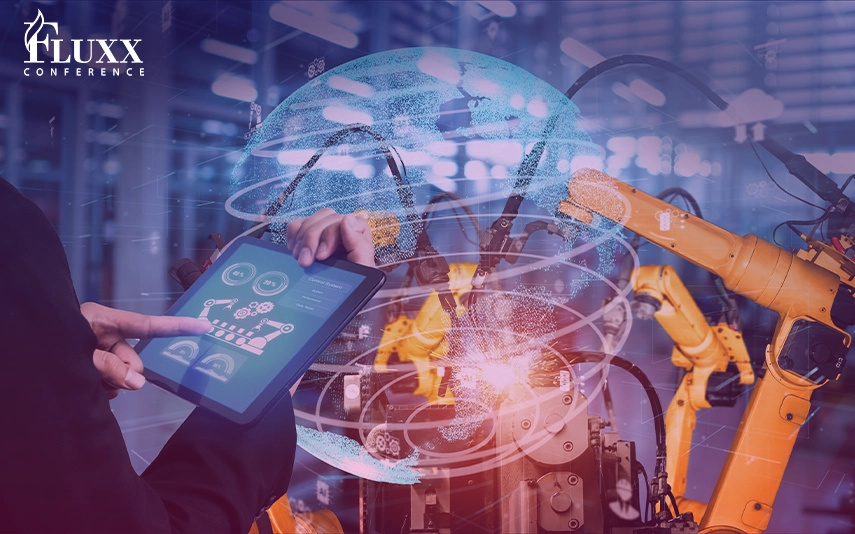
Industry 4.0: What to Know About the Fourth Industrial Revolution
The Fourth Industrial Revolution, also known as Industry 4.0, is transforming how businesses operate. It is bringing about an era of technological integration that is redefining industries across the globe. This revolution, fueled by innovations in automation, artificial intelligence (AI), the Internet of Things (IoT), and data analytics, pushes businesses to adapt quickly to maintain competitiveness. Understanding these changes and how to capitalize on them is essential for any company aiming for growth in the digital age.
What is Industry 4.0?
Industry 4.0 integrates three technological realms: digital, physical, and biological. It combines innovative systems based on physical computer elements, cloud connection technology, self-thinking machines, and IoT design. The implementation of advanced connectivity and automated data analysis capabilities enables businesses to perform operations that were previously out of reach, which provides them with increased efficiency and reduced prices while offering tailored products.
Key Technologies Driving Industry 4.0
1. Automation and Robotics:
Manufacturing operations automated through production automation have led to enhanced workplace efficiency and higher manufacturing capacity. Robots autonomous operation capability and the ability to run 24/7 initiatives by systems without human supervision is now possible. Businesses achieve higher production levels while eliminating human-caused mistakes through this method.
2. Artificial Intelligence (AI) and Machine Learning:
New technology helps companies analyze business information to make better decisions. Through machine learning algorithms, enterprises can process enormous datasets and study customer behavior while making instant decisions that benefit their organizational functions. The combination of AI technology enables organizations to develop predictive maintenance that cuts down operational delays while enhancing operational excellence.
3. Internet of Things (IoT):
IoT is a technology that unifies devices, sensors, and systems to create smooth data operations between different components. Adopting the Internet of Things within Industry 4.0 makes monitoring and controlling industrial operations in real-time possible. Businesses using IoT-enabled systems obtain combined machine performance and quality product data to optimize their decision-making.
4. Big Data and Advanced Analytics:
Industry 4.0 relies on the core capability to gather and process large data volumes. Analytics of big data systems enables businesses to find previously invisible patterns, essential insights, and established trends. The information gathered supports innovative developments throughout product creation, customer support, and operational process improvement. Through this implementation, organizations become more flexible and faster in their responses to customer market requirements.
The Impact of Industry 4.0 on Businesses
Adopting Industry 4.0 technology benefits organizations that confront substantial difficulties that need resolution. The primary advantages include:
Improved Efficiency and Productivity
Business operations run better with automation and AI technology because they help decrease flawed human work and increase system performance. Strategic tasks and creative work functions become possible for human workers because machines work autonomously to do routine tasks. As a result of this method, higher productivity emerges from limited resources.
Cost Reduction
Integrating intelligent systems into operations enables businesses to decrease operational expenses in various ways. AI-based preventive maintenance prevents expensive breakdowns, and automation saves labor costs by sending resources to their most effective use. Organizations that use data to understand their operations can lower storage levels and streamline delivery systems while giving customers better service, substantially reducing expenses.
Enhanced Customer Experience
Business operations that utilize Industry 4.0 technologies succeed in delivering customized offerings to their clients. Detector systems empowered by large customer data sets enable companies to provide targeted products that improve customer contentment and retention rates.
Adapting to the Fourth Industrial Revolution
A strategic business model enables organizations to benefit from implementing Industry 4.0 technologies. Several critical actions must guide business transformation as follows:
1. Invest in Talent and Training
Business organizations that move toward Industry 4.0 need to build their workforce capabilities to use new technological frameworks. Implementing Industry 4.0 requires staff members to learn advanced automation management and AI-powered tool management, in addition to data analysis and system operation training. Digital technology specialists, both inside and outside the organization, are needed to operate it effectively.
2. Foster a Culture of Innovation
The core idea of Industry 4.0 demands businesses to accept change and innovation. Workers need support from their businesses to develop a technology-friendly work environment that welcomes experimentation. The organization needs to eliminate barriers between departments while promoting teamwork and innovative thinking among employees. Companies that let innovation flow through their operations tend to stay ahead of rivals while going through digital transformation.
3. Upgrade Infrastructure
Using Industry 4.0 equipment needs a reliable digital communications network to operate. Organizations must use their funds to buy cloud services with advanced IoT and cybersecurity protocols for managing automated data procedures and live monitoring functions. An organization that establishes appropriate infrastructure can unlock digital technology potential and enable it to adapt quickly to environmental changes.
Conclusion
Industry 4.0 is more than just a technological trend; it represents a fundamental shift in how businesses operate and create value. By embracing automation, AI, IoT, and big data, businesses can achieve significant improvements in efficiency, cost reduction, and customer satisfaction. However, to fully capitalize on these advancements, companies must invest in talent, infrastructure, and cybersecurity while fostering a culture of innovation. Those who adapt to the Fourth Industrial Revolution will be well-positioned to lead in an increasingly digital world.
Join Fluxx Conference 2025 and connect with industry leaders shaping the future of business!



